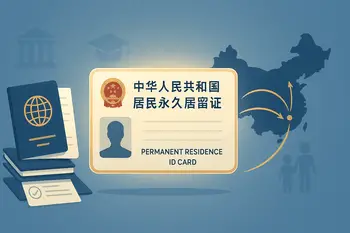
China’s real estate market is vast, dynamic, and often complex, offering a wide range of properties for rent and purchase.
Whether you’re an expat moving to China or a local resident looking for a new home, working with a real estate agent can simplify the process.
However, navigating this market requires a deeper understanding of regional differences, legal considerations, and cultural nuances.
This guide provides actionable insights into working with real estate agents in China, along with tips to avoid common pitfalls and make informed decisions.
1. Understanding the Role of Real Estate Agents in China
Real estate agents in China play a pivotal role in connecting buyers, renters, and sellers.
Their responsibilities include:
- Property Search: Agents help clients find properties that match their preferences, budget, and location. They often have access to exclusive listings not available on public platforms.
- Market Insights: Agents provide valuable information about local property trends, neighborhood amenities, and potential investment opportunities.
- Negotiation: They negotiate lease or sale terms on behalf of clients, ensuring favorable deals while addressing concerns with landlords or sellers.
- Legal and Administrative Support: Agents assist with lease agreements, property transfer documents, and compliance with local regulations.
- Property Visits: They arrange and accompany clients to property viewings, offering detailed information and answering questions.
However, it’s important to note that the quality of service can vary significantly between agents, and not all agents are equally reliable.
2. Regional Differences in China’s Real Estate Market
China’s property market is highly regionalized, with significant differences in pricing, regulations, and demand across cities.
For example:
- Beijing and Shanghai: These cities have mature, highly competitive markets with strict government regulations on property purchases, especially for non-residents.
- Shenzhen and Guangzhou: Known for their rapid growth, these cities offer opportunities for investment but may have volatile pricing trends.
- Smaller Cities: In Tier-2 and Tier-3 cities, property prices are generally lower, but the availability of professional real estate agents may be limited.
Understanding these regional differences is crucial when choosing an agent or property.
For more information on regional property trends, consult platforms like Lianjia (Beike) or Anjuke.
3. Finding the Right Real Estate Agent
Choosing the right agent is critical to a smooth property search.
Here are some tips:
- Research and Recommendations: Start by researching agencies in your target area. Seek recommendations from expat communities (e.g., Internations) or local forums like The Beijinger.
- Verify Credentials: Ensure the agent is licensed and has a proven track record. Inquire about their experience with expats or international clients.
- Specialization: Some agents specialize in residential, commercial, or luxury properties. Choose one with expertise in your desired property type.
- Language Skills: If you’re an expat, look for bilingual agents who can communicate effectively in both Chinese and your preferred language.
- Transparency: Ask for a clear breakdown of fees and commissions upfront to avoid hidden costs.
4. Questions to Ask Potential Agents
Before committing to an agent, ask the following questions:
- How long have you been working in the real estate industry?
- Do you specialize in properties for expats or international clients?
- Can you provide references from previous clients?
- What are your fees and commission rates?
- How do you stay updated on local property market trends?
- Can you assist with legal and administrative aspects of the transaction?
These questions will help you gauge the agent’s expertise and reliability.
5. Working Effectively with Your Real Estate Agent
Once you’ve chosen an agent, follow these tips to ensure a productive relationship:
- Clearly Define Your Needs: Communicate your budget, preferred location, and specific requirements (e.g., proximity to schools or public transport).
- Be Open to Suggestions: While it’s good to have clear preferences, trust your agent’s market knowledge and consider their recommendations.
- Stay Informed: Keep yourself updated on market trends and new listings. Platforms like Ziroom can complement your agent’s efforts.
- Provide Feedback: After property viewings, share honest feedback to help your agent refine their search.
- Trust but Verify: While agents are experts, always double-check legal documents and property details to avoid potential issues.
6. Legal and Administrative Considerations
Navigating the legal aspects of property transactions in China can be challenging, especially for expats.
Here’s what you need to know:
- Lease Agreements: Ensure the lease agreement is comprehensive and includes all terms (e.g., rent, deposit, maintenance responsibilities). Seek legal advice if needed.
- Property Ownership Verification: Before purchasing, verify the property’s ownership and legal status. Your agent should assist with due diligence.
- Regulations for Expats: Non-residents face restrictions on property purchases in China. For example, expats must have lived in China for at least one year and can only buy one residential property for personal use.
- Avoiding Scams: Be cautious of unlicensed agents or deals that seem too good to be true. Always work with reputable agencies.
For detailed legal guidance, consult resources like China Briefing or seek advice from a local lawyer.
7. Real Estate Fees and Commissions
Understanding the cost of working with an agent is essential:
- Commission Rates: For property sales, agents typically charge 1-2% of the transaction value. For rentals, the fee is often equivalent to one month’s rent.
- Additional Fees: Some agents may charge for extra services like property inspections or legal assistance. Clarify all costs upfront to avoid surprises.
8. Alternatives to Real Estate Agents
While agents are helpful, there are alternative ways to find properties in China:
- Online Platforms: Websites like Lianjia, Anjuke, and Ziroom allow you to browse listings directly.
- Direct Deals: Some landlords prefer to rent or sell properties without involving agents. This can save on commission fees but requires more effort and due diligence.
- Expat Communities: Platforms like Internations or local WeChat groups often share property listings and recommendations.
9. Cultural Considerations
Understanding Chinese cultural norms can improve your experience:
- Guanxi (Relationships): Building trust and relationships with agents or landlords can lead to better deals.
- Negotiation Style: Negotiations in China may involve more back-and-forth than in Western countries. Be patient and flexible.
- Property Preferences: Chinese buyers often prioritize properties with good Feng Shui. While this may not matter to you, it can influence property availability and pricing.
Conclusion: Navigating China’s Property Market with Confidence
Working with a real estate agent in China can simplify the property search process, but it’s essential to choose the right agent, stay informed, and understand the legal and cultural context.
By combining the expertise of a reliable agent with your own research, you can navigate the market confidently and find your ideal property.
For further reading, explore resources like China Briefing or The Beijinger.
Whether you’re renting or buying, embrace the journey and enjoy the opportunities that China’s dynamic property market has to offer.


